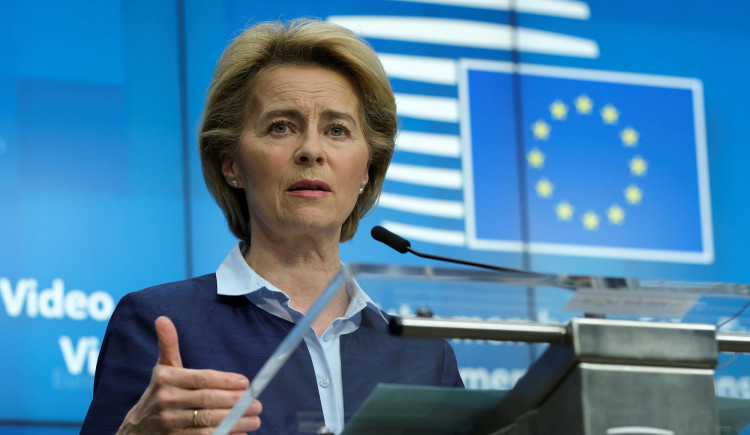The European Commission will unveil a program on Wednesday to help the European economy bounce back from the ravages of the global health crisis with a combination of loans, grants and guarantees of over 1 trillion euros.
The plan is to help badly-affected sectors to quickly recover and protect the region's single market of 450 million people being divided by contrasting economic growth and wealth distribution as the 27-nation group rises from its worst economic hole this year.
EU chief Ursula von der Leyen will propose a post-virus recovery fund for Europe valued at around one trillion euros, but she will need to win the hearts of some detractors from the bloc.
The pandemic has dragged the EU down into its deepest ever financial quicksand and the plan of Von der Leyen will be a big help especially to the most ravaged sectors.
COVID-19 has already claimed the lives of around 172,000 people in Europe and reduced the region's economy into near shambles, with businesses only restarting in a very limited capacity.
The humongous European proposition follows other never-before done bailout efforts unveiled around the globe to save economies from being totally crippled by the virus, which has killed almost 350,000 people with infections steadily reaching the 5.6 million mark.
Von der Leyen's plan is seen to set the stage for tough negotiations, as supporters try woo some northern European Union member territories that are not too comfortable about releasing funds to nations already mired in deep debt, like Spain and Italy.
Spain is set to start a ten-day official mourning on Wednesday for the over 27,000 people who perished in the pandemic in the country, with all flags on public places and buildings on half mast.
The European Commission, the European Union's executive branch, has won the support France and Germany to secure half trillion euros on major financial markets to start solving its misery.
While desperate to revive their struggling financial markets and other key sectors, especially the tourism, most European governments are also trying to tread carefully towards reopening in the midst of fears of a dreaded second wave of COVID-19 infections hitting the region hard again.
Meanwhile, Brazil has reported its highest daily death figure in the world for the fifth consecutive day, increasing its toll to 24,512 with infections climbing to over 390,000.
The US remains the worst-hit country in the world, and with the number of fatalities nearing 100,000, President Donald Trump has to deal with a barrage of criticisms for the way he handles the pandemic.






